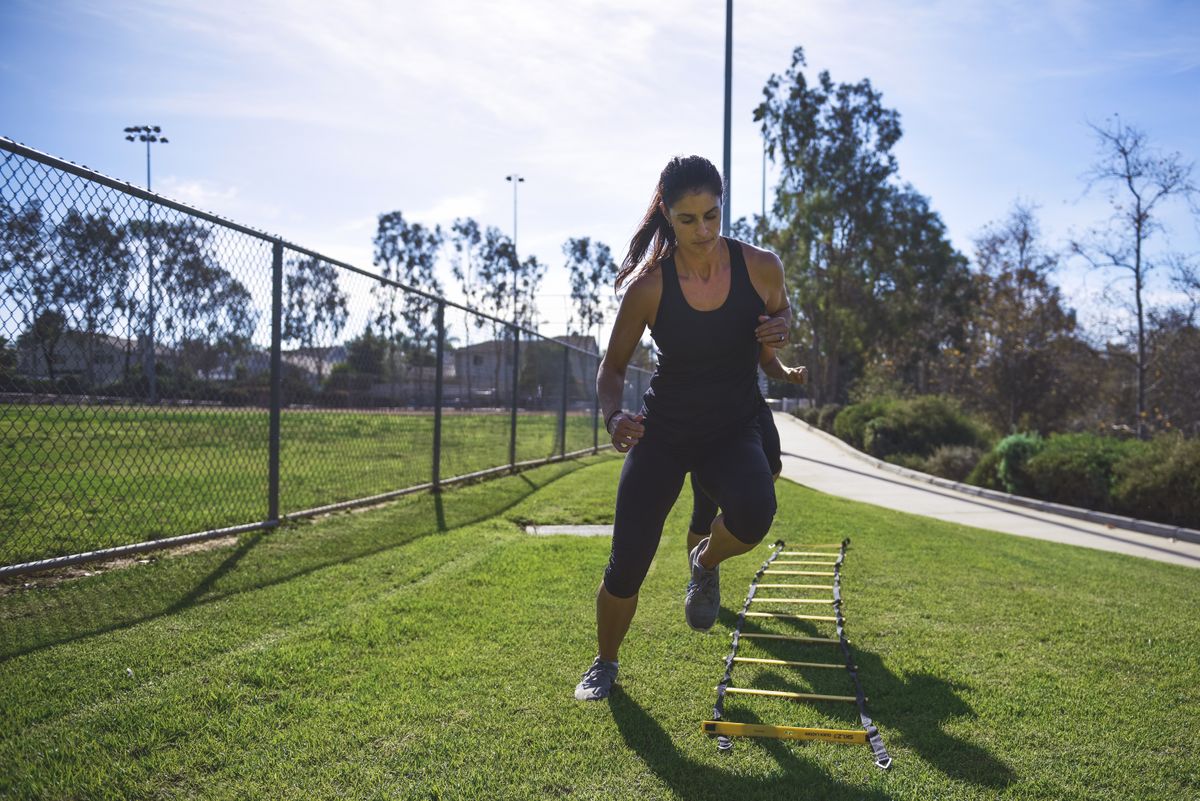1. Alignment - your pelvic floor fires best in a neutral spine position, meaning your ribcage is stacked right over your pelvis. We can change our posture to recruit more of the front triangle muscles (urinary control) or back triangle muscles (bowel control) based on our position. Thinking about where your head is while jumping or running is one way to change the pressure distribution onto your pelvic floor. Think about looking straight ahead of you, a little down, a little up, to change where you hold your head during the exercise.
2. Breathing - every time you breathe, your pelvic floor acts like a trampoline absorbing the pressure placed onto it from your internal organs as your diaphragm draws air into your lungs on an inhale, and then rebounds as you exhale. Making sure you are not holding your breath throughout an exercise is one thing, but you can also experiment with long exhales through a motion or trying to do a quick exhale as if blowing out a candle each time you land on the ground (for example, during jumping).
3. Cadence - the speed in which you are moving also can have an impact during exercise. Specifically, during running or jogging, changing up the number of steps you take per minute can help your pelvic floor respond better. You may need to take more, shorter steps or fewer, longer steps to find the optimal length tension relationship for your pelvic floor. This may also change at certain points of time in a run when the fatigue factor starts to happen.
4. Digestion- Surprise!!!! Your digestive health has a huge impact on your bladder! If you have any constipation/incomplete bowel emptying, have to strain for bowel movements, or have harder texture stool, this makes your bladder unhappy, places more pressure on it, as well as irritates the nerves in the area. Having smooth, happy bowels makes a big difference for the bladder. Good poops help you control your pee! Managing stress, getting good sleep, nutrition, and hydration are key for happy poops.

